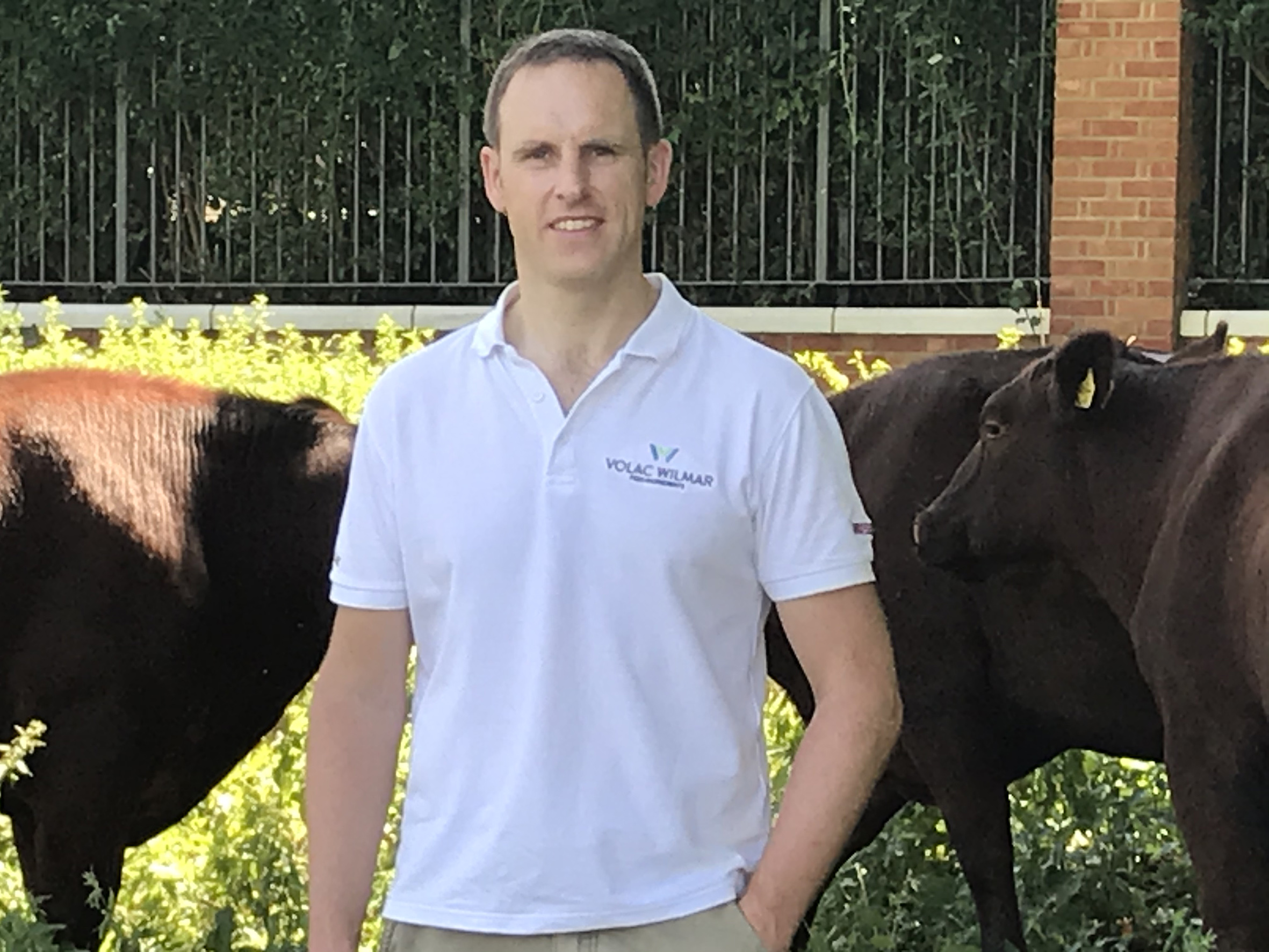Feeding rumen-protected fats through the winter provides a concentrated, rumen-safe energy source that supports milk production, body condition, fertility and milk composition when bulky silage rations can limit energy intake.
As dairy producers transition into winter feeding, rumen-protected fats are essential to maintain energy balance in rations without risking acidosis issues from excessive amounts of cereals.
“With grass and maize silages forming the base of most diets, achieving the energy density required to sustain milk production and fertility can be difficult,” explains Dr Richard Kirkland, Global Technical Manager for Volac Wilmar Feed Ingredients.
Research shows that dairy cows require 15–20% of their total metabolisable energy (ME) from fat. For high-yielding cows, this is typically around 6% of the ration's dry matter (DM). While forages and concentrates provide some of this, supplementation with rumen-protected fats allows producers to reach optimal levels safely, without compromising rumen health.
According to Dr Kirkland, rumen-protected fat supplements are the ideal vehicle to deliver this energy supply while avoiding disruption of rumen function. Carrying 2.5-times the energy density of cereals, the Megalac product delivers around 33 megajoules (MJ) of ME per kilogram of DM.
Unlike starch or sugar, rumen-protected fats do not ferment in the rumen. They pass intact to the small intestine, where they are digested and absorbed as fatty acids. This makes them a particularly safe and stable source of energy in winter diets since they don’t lower rumen pH or disrupt fibre digestion.
Silages can vary widely in energy content depending on cutting date, regrowth interval and fermentation quality. Multi-cut systems, usually higher in sugars, tend to produce more rapidly fermentable forages that pass through the rumen quickly. If not balanced correctly, this increases the risk of acidosis and milk fat depression.
“While high-fibre ingredients like straw can slow digestion, they also fill the rumen with low-quality bulk. Avoid overloading the diet with cereals to make up for the energy deficit because that will raise rumen acidity. Instead, choose a rumen-protected fat supplement that won’t disrupt rumen function while providing a dense, rumen-safe energy source,” says Dr Kirkland.
Using rumen-protected fats strategically
Along with delivering energy density to winter rations while supporting rumen function, the fatty-acid profile of a supplement determines how it affects performance and how nutrients are partitioned within the cow. This allows farmers to further support areas of cow performance based on lactation cycle stages and individual milk contract premiums.
“In early lactation, cows are at peak energy demand and in negative energy balance (‘milking off their backs’). The calcium salt supplements like Megalac are rich in the C18:1 (oleic) fatty acid, which supports body condition, improves fat digestibility and enhances fertility,” explains Dr Kirkland. “Each unit loss in condition can reduce conception rates by about 10%. Feeding rumen-protected C18:1 helps to minimise that loss and supports egg and embryo development.”
As cows pass peak yield and return to positive energy balance in mid-to-late lactation, supplements higher in the C16:0 (palmitic) fatty acid promote milk and milk fat production by inducing insulin resistance. Higher inclusion rates of the C16:0 fatty acid should be avoided in early lactation, as this fatty acid can promote increased milk production at the expense of body fat and condition.
Boosting energy supply and cow performance in winter rations
 While supporting energy supply and cow performance can be a challenge in winter rations with varying silage quality, high cereals and increased metabolic stress, rumen-protected fat supplements will help dairy farmers overcome this.
While supporting energy supply and cow performance can be a challenge in winter rations with varying silage quality, high cereals and increased metabolic stress, rumen-protected fat supplements will help dairy farmers overcome this.
“Delivering adequate energy to support milk production will always be a challenge with modern high-yielding cows. Fat is an essential and unique energy source – without it, cows risk losing excessive body condition, health issues, and fertility declines,” concludes Dr Kirkland. “But it is also more than just an energy boost. Rumen-protected fats are a targeted tool that allows farmers to have more control over milk composition and cow body condition for the best return on every litre produced.”

Rumen-protected fats provide a rumen-safe energy source that helps maintain fertility, milk quality and cow condition during the winter feeding period, says Dr Richard Kirkland of Volac Wilmar Feed Ingredients.
